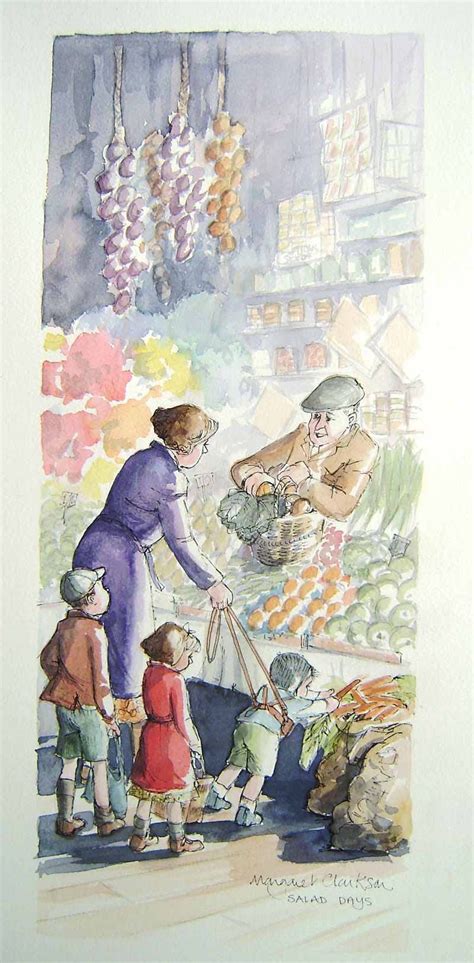A Quote by Jerry Bridges
Trust is not a passive state of mind. It is a vigorous act of the soul by which we choose to lay hold on the promises of God and cling to them despite the adversity that at times seeks to overwhelms us.
Related Quotes
The soul seeks God by faith, not by the reasonings of the mind and labored efforts, but by the drawings of love; to which inclinations God responds, and instructs the soul, which co-operates actively. God then puts the soul in a passive state where He accomplishes all, causing great progress, first by way of enjoyment, then by privation, and finally by pure love.
To lay hold of and receive the gospel by a true and saving faith is an act of the soul that has been made a new creature, which is the workmanship of God... Wherefore whoever receiveth the grace that is tendered in the gospel, they must be quickened by the power of God, their eyes must be opened, their understandings illuminated, their ears unstopped, their hearts circumcised, their wills also rectified, and the Son of God revealed in them.
We are not called on to believe this or that doctrine which may be proposed to us till we can do so from honest conviction. But we are called on to trust--to trust ourselves to God, being sure that He will lead us right--to keep close to Him--and to trust the promises which He whispers through our conscience; this we can do, and we ought to do.
Avoid duplicity, that is, do not let your heart be divided between attachment to God and attachment to earthly things, 'You cannot serve God and mammon' (Mt. 6:24); cling to God alone, put your trust in Him alone; for the Devil, by inciting us to duplicity, seeks himself to gain possession of our heart, which is single and indivisible.
On accepting adversity in our lives: Always it is initiated by an act of will on our part; we set ourselves to believe in the overruling goodness, providence, and sovereignty of God and refuse to turn aside no matter what may come, no matter how we may feel. I mistakenly thought I could not trust God unless I felt like trusting Him. Now I am learning that trusting God is first of all a matter of the will. I choose to trust in God, and my feelings eventually follow.
With us the inner nature accords with the outer expectation. The body follows the mind, and the mind seeks the soul, which it strives toward but has not yet won. With you it is otherwise. The mind follows the body in pursuit of the soul you have been told you already have. Because you cannot find it, you assume you have lost it somewhere in your past, and this keeps you from achieving it in your future.
To be one of God's lilies means an interior abandonment of the rarest kind. It means that we are to be infinitely passive, and yet infinitely active also; passive as regards self and its workings, active as regards attention and response to God. It is very hard to explain this so as to be understood But it means that we must lay down all the activity of the creature, as such, and must let only the activities of God work in us, and through us, and by us. Self must step aside, to let God work.
A God who chastises our lack of faith, our vices, the little esteem in which we hold dignity and the civic virtues. We tolerate vice, we make ourselves its accomplices, at times we applaud it, and it is just, very just that we suffer the consequences, that our children suffer them. It is the God of liberty ... who obliges us to love it, by making the yoke heavy for us - a God of mercy, of equity, who while He chastises us betters us and only grants prosperity to him who has merited it through his efforts. The school of suffering tempers, the arena of combat strengthens the soul.
Manifestation is an act of trust. It is the soul pouring itself out into its world, like a fisherman casting a net to gather in the fish he seeks; with each cast properly made, we will bring what we need to us, but first we must hurl ourselves into the depths without knowing just what lies beneath us.
It is Deism which depicts God as the passive onlooker rather than the active governor of His world, and which assures us that the guarantee of human freedom lies in the fact that men's actions are not under God's control. But the Bible teaches rather that the freedom of God, who works in and through His creatures, leading them to act according to their nature, is itself the foundation and guarantee of the freedom of their action.
The Bible is full of God's promises to provide for us spiritually and materially, to never forsake us, to give us peace in times of difficult circumstances, to cause all circumstances to work together for our good, and finally to bring us safely home to glory. Not one of those promises is dependent upon our performance. They are all dependent on the grace of God given to us through Jesus Christ.
The soul seeks God with its whole being. Because it is desperate to be whole, the soul is God-smitten and God-crazy and God-obsessed. My mind may be obsessed with idols; my will may be enslaved to habits; my body may be consumed with appetites. But my soul will never find rest until it rests in God.
Who will deny that true religion consists, in a great measure, in vigorous and lively actings of the inclination and will of the soul, or the fervent exercises of the heart? That religion which God requires, and will accept, does not consist in weak, dull, and lifeless, wishes, raising us but a little above a state of indifference.
These are the times in which a genius would wish to live. It is not in the still calm of life, or the repose of a pacific station, that great characters are formed. The habits of a vigorous mind are formed in contending with difficulties. Great necessities call out great virtues. When a mind is raised, and animated by scenes that engage the heart, then those qualities which would otherwise lay dormant, wake into life and form the character of the hero and the statesman.


































